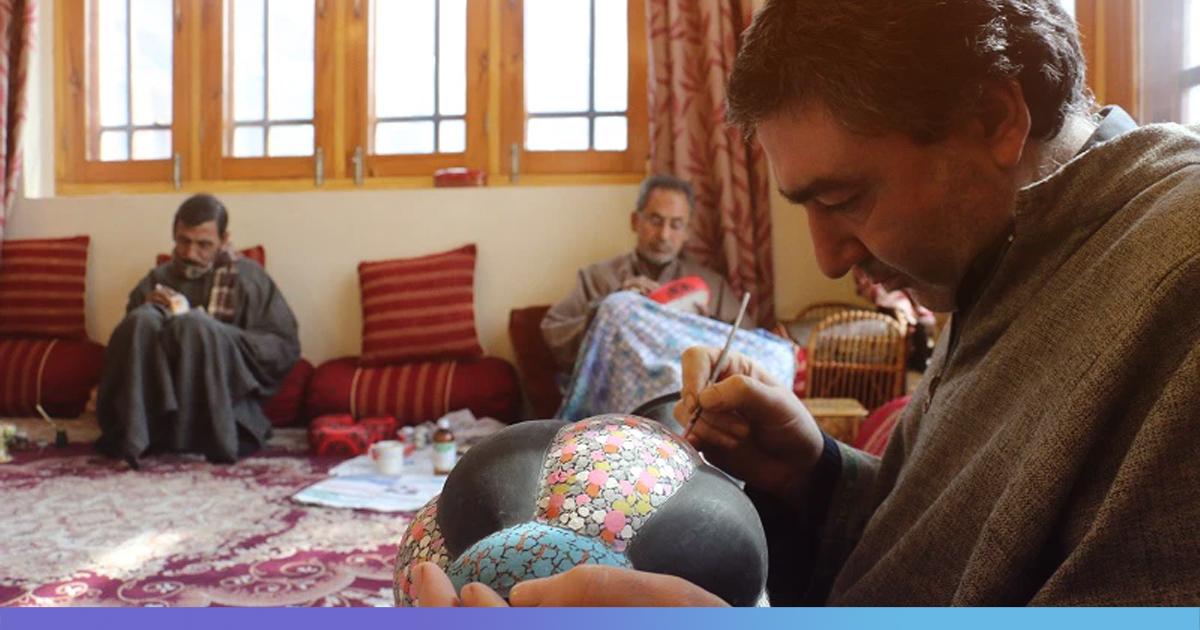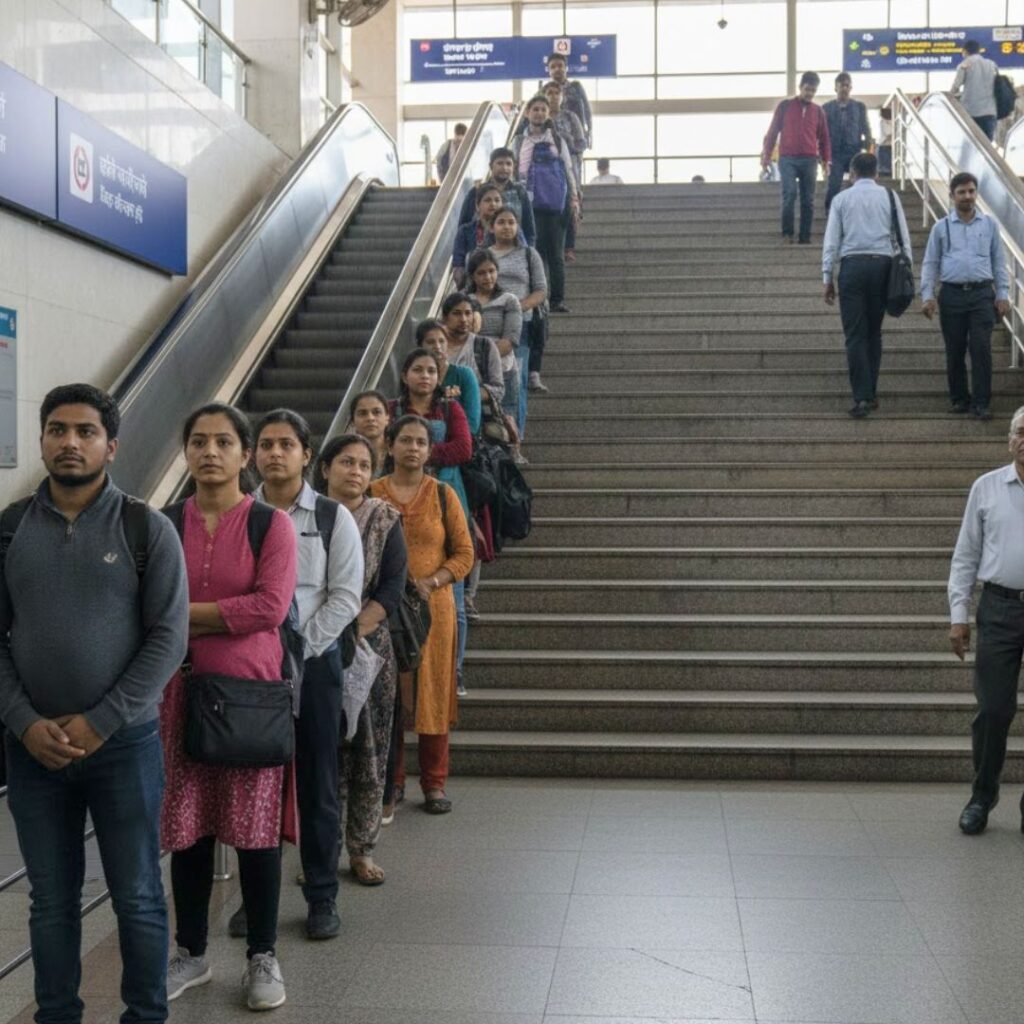Goods and Service Tax (GST) collection in the Kashmir valley has been marred by the Internet shutdown, which will run into its 6th month soon.
Sheikh Ashiq, president of the Kashmir Chamber of Commerce and Industry (KCCI), while speaking to The Logical Indian, estimated that over 50% of Kashmiri business people have been unable to file their GST returns since August 5 – when the J&K’s special status was abrogated and the region was bifurcated into two union territories.
Even as the Central government extended the last date for filing returns to December 20, an overwhelming portion of the populace is still struggling to find the means for completing the procedure.
Mohammed Jameel Khan, a resident of Jammu said that the condition of GST filing in his region was poor. “The collection of GST is very little this year. In Jammu, it has fallen to Rs 25 crore in September, shockingly lower than Rs 164 crores that were collected in July this year”, he said quoting a media report, “Jammuites still have it better due to the availability of broadband services, but the situation in the Valley is very bad.”
There have been protests in the region of Jammu over the difficulties being faced by the locals during filing GST returns. “The situation is barely tolerable for anyone”, he remarked.
The Launch Of GST in Kashmir: When & How?
The goods and service tax (GST) was introduced into the Indian taxation system in July 2017, but it excluded the erstwhile state of Jammu and Kashmir from its purview due to the special protection given to the state by the virtue of Article 370.
Nevertheless, on July 7 2017, former President Pranab Mukherjee gave his nod to the application of the goods and service tax to J&K after the PDP-BJP government passed a resolution in the assembly under the chairwomanship of Mehbooba Mufti.
But ever since the former federal state was divided into two separate union territories – one with a legislature (Jammu and Kashmir) and one without a legislature (Ladakh) – there have been a lot of questions on whether the state goods and services tax (SGST) will continue or not.
As no official statement has been given over the continuance of SGST, experts and native residents/businesspeople are only left speculating the possibilities. Taking a cue from other Indian union territories (UT) like Delhi and Pondicherry – who have a cabinet of their own, the new UT of Jammu & Kashmir might find its system of SGST intact but Ladakh may be seeing an overhaul in its tax collection order.
Nasty Quandary: No Internet Or Resources, But Penalties Levied
The Logical Indian contacted two chartered accountants (CAs) running their own accounts and tax services firms in Srinagar, to understand the situation on the ground.
Yasir Mehfooz, a young accountant, almost bankrupt due to the blockade of Internet in the valley, broke down the entire procedure of GST filings and how the current crisis is a ‘cruel joke’ for Kashmiris.
“Ever since the Centre shut off mobile calling and Internet in the region, people have been unable to access their GST portals following August, to file returns. This has left the returns for the month of July pending and as a consequence, the arrears accumulated have also given rise to several penalties that Kashmiris may be forced to pay”, he said.
“You can imagine, people have penalties piled up against their names for the months of July, August, September, October, November and December”, he added.
Altaf Lone, another chartered accountant who was in New Delhi solely for accessing the Internet, commented on what a herculean task it was for him to finish filing his clients’ returns in the limited days he had.
In Kashmir, many traders have found their GST identification numbers (GSTINs) blocked from generating e-way bills – that are a lifeline for any registered tax-paying business.
“The generation of e-way bills has been barred due to the non-filing of returns”, Altaf Lone said.
As per the GST council guidelines, with effect from 2nd December, if returns remain unfiled for more than two months, the process of generating e-way bills gets automatically blocked. This is a recent addition to the new indirect tax regime that looks to crack down on tax evaders and defaulters. However, in the case of Kashmir, the absence of Internet has forcibly incapacitated people and pushed their names into the list of ‘tax defaulters’.
This development was discovered by the locals who lined up in the District Commissioner’s (DC) office to generate their e-way bills. “The bill takes 2-3 minutes to be created, but business owners have been standing for hours in chilling temperatures in lines that run all the way down the road to finish a trivial yet important task”, Lone informed.
An e-way bill is an electronic bill that records the movement of goods. A registered business cannot transport goods whose value exceeds Rs 50,000, in any vehicle without an e-way bill. When it is generated, a unique E-way Bill Number (EBN) is allocated and is available to the supplier, recipient, and the transporter of the goods.
“Many traders of fruits, vegetables, natural resources, and export items, have been sporadically sending consignments across the country. But since December, their e-way bill generation has been blocked due to non-payment of returns since July”, Yasir said.
Ergo, the few functioning businesses have not been able to deliver goods without an e-way bill as the authorities can declare the dispatcher a ‘tax evader’ and subsequently levy a fine equivalent to the tax amount payable. The goods along with the vehicle transporting them can also be seized or detained only to be released when the pending tax amount and the penalty is paid.
“This has led to a disruption in the day-to-day operations and deliveries of a business”, Lone said.
The Logical Indian asked Altaf Lone that if a few business people were able to access the Internet to check if their GSTINs were blocked, why weren’t they able to clear their pending returns at the same moment?
“E-way bill creation takes 2 minutes. Filing of GST returns is not the forte of business owners and traders, and that is exactly why CAs are hired. The e-way bill generation falls under the scope of the businessperson as it deals with everyday activity. A chartered accountant has completely different duties. In a large organisation, something like ‘bill generation’ would be undertaken by the ‘material procurement team’ and tax filings by a separate ‘tax team’. It is the same everywhere and filing GST returns is a whole different, incomparably detailed and lengthy process”, Lone explained.
The Central Government recently said that it has waived off late fee and interest imposed on traders who failed to file GST Returns since August 20. Late fees and interest have been struck off for those who have paid their accumulated returns between August 20 to December 20, 2019. “Anyone who has paid the imposed penalty will be reimbursed by the government” Commissioner J&K Taxes Department, PK Bhat, told Greater Kashmir.
But Sheikh Ashiq affirmed that at least 50% of traders and businesspeople have still not filed their dues.
“The only thing I can hope for my people is an extension until 31st January or the restoration on Internet facilities”, he said.
When the deadline was extended to December 20 from November 18, ‘many came forward to have their job done’, but the ratio of computer systems to people is so terribly asymmetrical that only a margin has successfully completed their filings since July, Sheikh Ashiq revealed.
“The date for filing Income Tax returns has been extended to 31st January by the Central government. I only hope that they understand and push the date for GST filings as well.”
Even Altaf Lone lamented on the poor state of Internet kiosks set up for the purpose of GST filing and other problems.
“For GST we have two centres – one at the DC’s office and the other in the Tax Department. There is always an enormous crowd at both the locations and it becomes very hard to carry out a meticulous procedure like this with the crowd constantly prodding you to be done faster. One is bound to make mistakes that cannot be afforded when time is a luxury.”
“If I go to the DC’s office, my heart breaks to see innumerable students mixed with the crowd who have fought the harsh winter to line up here. They while away hours of important time just to fill up college applications and scholarship forms. Are they supposed to study for their entrances or waste time every day travelling to the office and waiting for hours to only get five-minutes-worth of work done?” he asserted.
In addition to the intimidating length of lines and wait time, the Internet facilitation centres for Kashmir are centralized in Srinagar. People and traders from across the Kashmir division need to travel for hours and wait for a few more hours to access the net. Sometimes due to the closure of highways and roads for military movement, people are helpless and cannot travel to make it to these facilitation centres.
Even if the unending lines, lack of computer systems, painful Internet speed, is put aside, the fact that SMS services have been severed in the Valley, is a major hurdle.
“For every time we process a return, we get an OTP (one time password) on our registered mobile number. Only on entering that OTP can we proceed and complete the task but SMS services have been suspended for 5 months now. How do we do our jobs? The OTPs are sometimes sent on our emails and in such situations, we toil and call a relative out of Kashmir to access the code. But it is not always that we find someone to do it and even when we do, we are faced with another problem because when an unidentified IP address tries to log in, an OTP sent to the registered number needs to be entered. With our ‘registered numbers’ rendered entirely useless, we are neither here nor there. There is no way to finish the job”, Yasir cried helplessly.
Although the Centre has announced that late fees will be waived off for those who have paid their returns for July, only a small percentage of the Kashmiri population stands to be benefitted by this move since the deadline for monthly GST returns always falls in the second week of the next month and all communication services were suspended on 5th August, even before the first week was over.
Apart from the imposed penalties that businesses will have to face; credit card dues, loan payments, EMI payments, and other net-powered banking procedures, have been left in limbo and they come with fines of their own.
“How much financial burden can we take? Is a person supposed to run his/her shop or run around town trying to file returns and check on the piling fines?” Sheikh Ashiq grimly questioned.
“We are entering our 6th month of the clampdown, which has also been the longest Internet shutdown in history. Since then, businesses in the Kashmir division, including all its 10 districts, have incurred a collective loss of Rs 17,800 crores.”
Also Read: Kashmir Economy Suffered Rs 17,878 Crores Loss In 4 Months After Article 370 Abrogation











